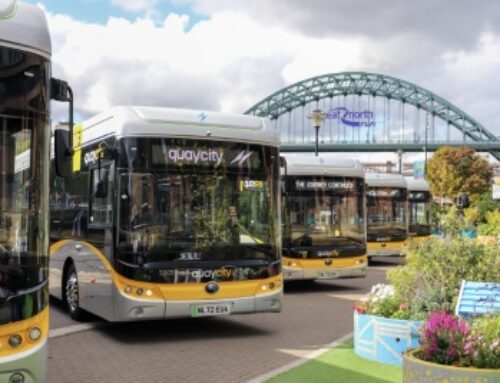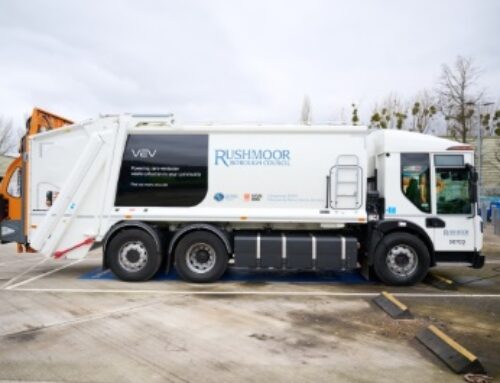DfT considers private testers for ATFs
 The Department for Transport (DfT) is inviting comment from operators on the future strategy for its motoring service agencies, in a wide range of areas relevant to the commercial vehicle sector – including on whether private testers should be allowed to perform annual tests at authorised testing facilities (ATF).
The Department for Transport (DfT) is inviting comment from operators on the future strategy for its motoring service agencies, in a wide range of areas relevant to the commercial vehicle sector – including on whether private testers should be allowed to perform annual tests at authorised testing facilities (ATF).
The consultation, which is open until 8 January, looks at the work of the Driver & Vehicle Licensing Agency (DVLA), the Driver & Vehicle Standards Agency (DVSA), and the Vehicle Certification Agency (VCA).
Among the questions it asks is whether the extension of large goods vehicle (LGV) annual testing to private sector testers would be welcomed, and whether the industry has: “the appetite and capability to provide such an expansion.” Currently, all annual tests must be conducted by DVSA-employed examiners.
“We will consider whether industry would be best served by a ‘mixed economy’ which allows some private sector delegated examiners to conduct LGV tests at authorised testing facilities (ATFs) (following the model for cars), with appropriate safeguards to ensure fleet operators could not certificate their own vehicles,” said DfT.
The department also said that DVSA would: “continue to review the extent to which it needs to maintain its own LGV testing stations,” and look to expand the number of private ATFs in remote areas.
Other topics covered by the consultation include means of streamlining the large goods vehicle (LGV) driver licensing process, and potentially separating the on-road and manoeuvring components of the LGV driving test.
“We acknowledge that the way in which the agencies process applications could be more joined-up, while maintaining standards, to enable LGV drivers who have met the required driving standards to obtain their licence and start work,” said DfT.
“We propose to develop a more integrated approach to the process of gaining an LGV driving licence, to remove some of the obstacles.”
On the enforcement side, opinion is sought on DVSA’s ‘earned recognition’ scheme, intended to promote a shift to remote enforcement for compliant operators, and on how DVSA could improve the speed of roadside checks.
The Freight Transport Association said it welcomed the proposal for the earned recognition scheme, and also that the private testing of HGVs could: “help tackle the current problem of delays in securing a vehicle test slot.”
Karen Dee, director of policy at FTA, said: “The requirements of our members are frequently poorly understood or overlooked, and we need to improve the way in which the agencies and their systems interact with each other and with their customers in order to reduce the burden of compliance on our industry.”
She added that operational improvements by the agencies could significantly mitigate the driver shortage, highlighting problems with the processing of vocational licences, especially where medical investigations are required.
“Our industry is experiencing a serious skills shortage and processing delays mean both that vacancies aren’t being filled effectively and that some existing drivers are prevented from working,” she said. “We welcome government’s acknowledgement of this problem but believe urgent changes are needed to improve the service.”
Ms Dee added: “The motoring agencies provide a wide range of services which are essential to freight operators. Many of these are funded by fees paid by operators themselves, rather than by the taxpayer, so it is essential to ensure that they provide efficient, value for money and affordable services.”
The full consultation can be accessed here.











